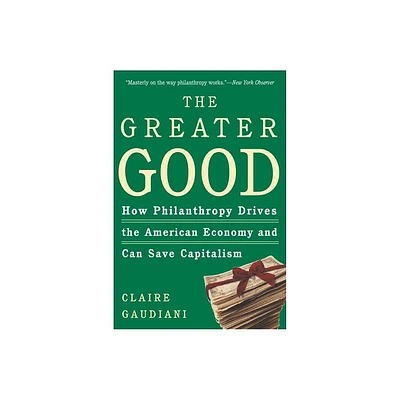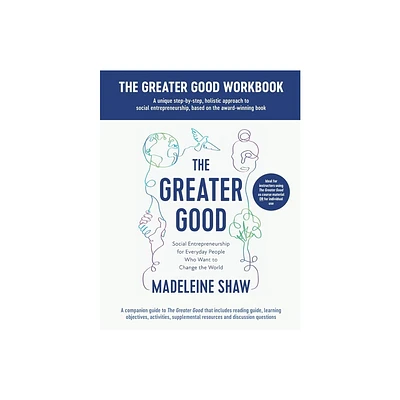Home
Greater Good: How Good Marketing Makes for Better Democracy
Loading Inventory...
Barnes and Noble
Greater Good: How Good Marketing Makes for Better Democracy
Current price: $35.00


Barnes and Noble
Greater Good: How Good Marketing Makes for Better Democracy
Current price: $35.00
Loading Inventory...
Size: Hardcover
*Product Information may vary - to confirm product availability, pricing, and additional information please contact Barnes and Noble
Marketing has a greater purpose, and marketers, a higher calling, than simply selling more widgets, according to John Quelch and Katherine Jocz.
In Greater Good, the authors contend that marketing performs an essential societal function--and does so democratically. They maintain that people would benefit if the realms of politics and marketing were informed by one another's best principles and practices.
Quelch and Jocz lay out the six fundamental characteristics that marketing and democracy share: (1) exchange of value, such as goods, services, and promises, (2) consumption of goods and services, (3) choice in all decisions, (4) free flow of information, (5) active engagement of a majority of individuals, and (6) inclusion of as many people as possible. Without these six traits, both marketing and democracy would fail, and with them, society.
Drawing on current and historical examples from economies around the world, this landmark work illuminates marketing's critical role in the development, growth, and governance of societies. It reveals how good marketing practices improve the political process and--in turn--the practice of democracy itself.
In Greater Good, the authors contend that marketing performs an essential societal function--and does so democratically. They maintain that people would benefit if the realms of politics and marketing were informed by one another's best principles and practices.
Quelch and Jocz lay out the six fundamental characteristics that marketing and democracy share: (1) exchange of value, such as goods, services, and promises, (2) consumption of goods and services, (3) choice in all decisions, (4) free flow of information, (5) active engagement of a majority of individuals, and (6) inclusion of as many people as possible. Without these six traits, both marketing and democracy would fail, and with them, society.
Drawing on current and historical examples from economies around the world, this landmark work illuminates marketing's critical role in the development, growth, and governance of societies. It reveals how good marketing practices improve the political process and--in turn--the practice of democracy itself.


















